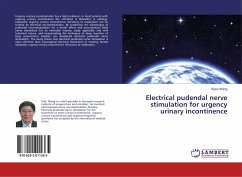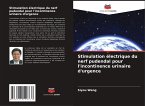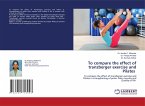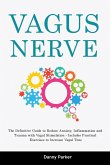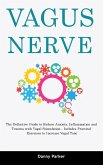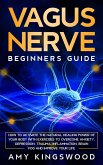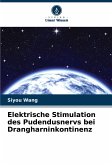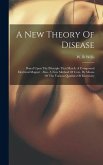Urgency urinary incontinenceIn has a high incidence. In most patients with urgency urinary incontinence the condition is idiopathic in etiology. Idiopathic urgency urinary incontinence refractory to medication can be treated by electrical neuromodulation. By combining the advantages of pudendal neuromodulation for a better effect and percutaneous tibial nerve stimulation for its minimally invasive, easily applicable and well tolerated nature, and incorporating the technique of deep insertion of long acupuncture needles, we developed electrical pudendal nerve stimulation. The study shows that electrical pudendal nerve stimulation is more effective than transvaginal electrical stimulation in treating female idiopathic urgency urinary incontinence refractory to medication.
Bitte wählen Sie Ihr Anliegen aus.
Rechnungen
Retourenschein anfordern
Bestellstatus
Storno

